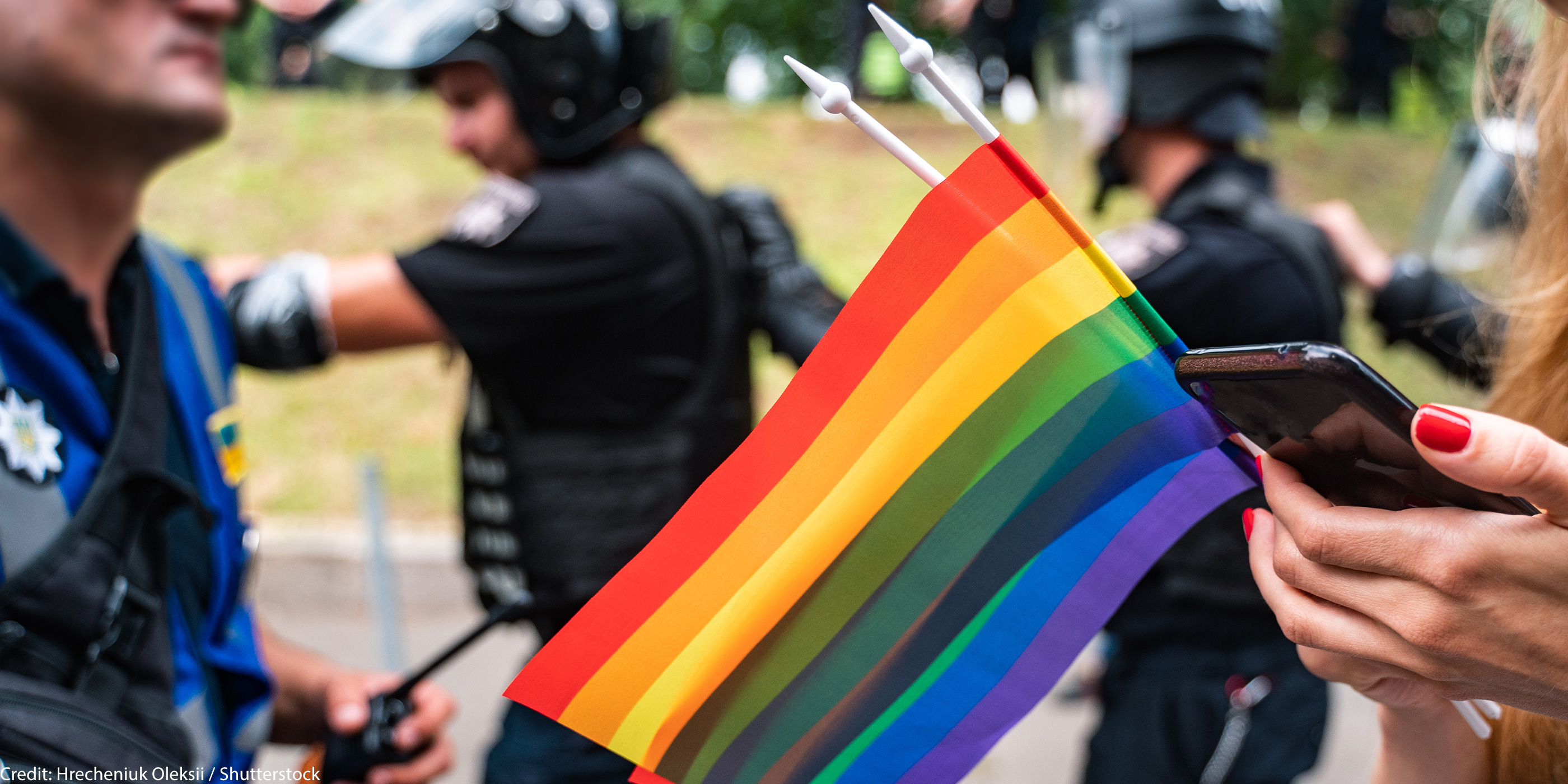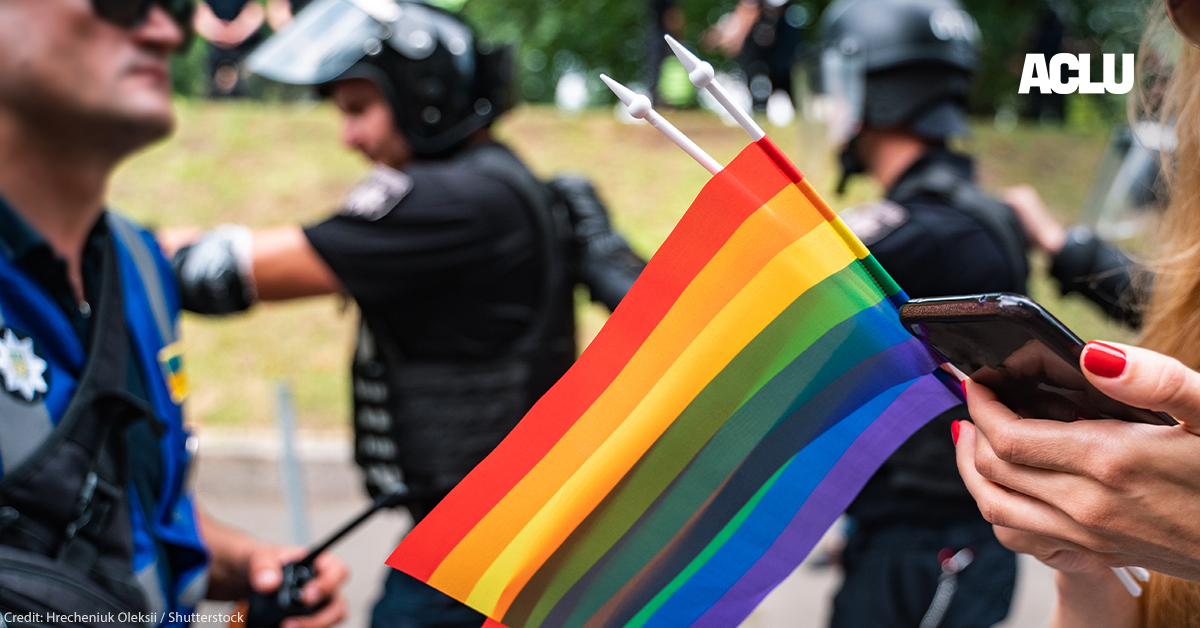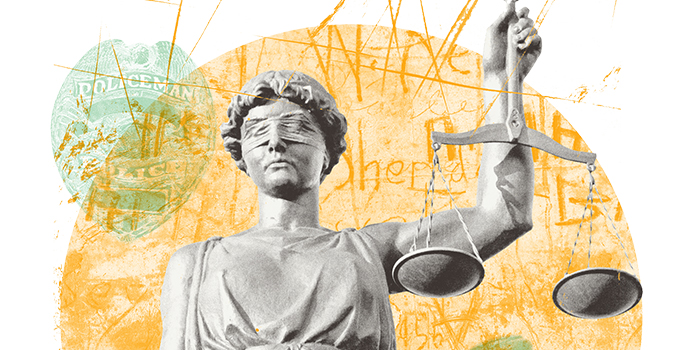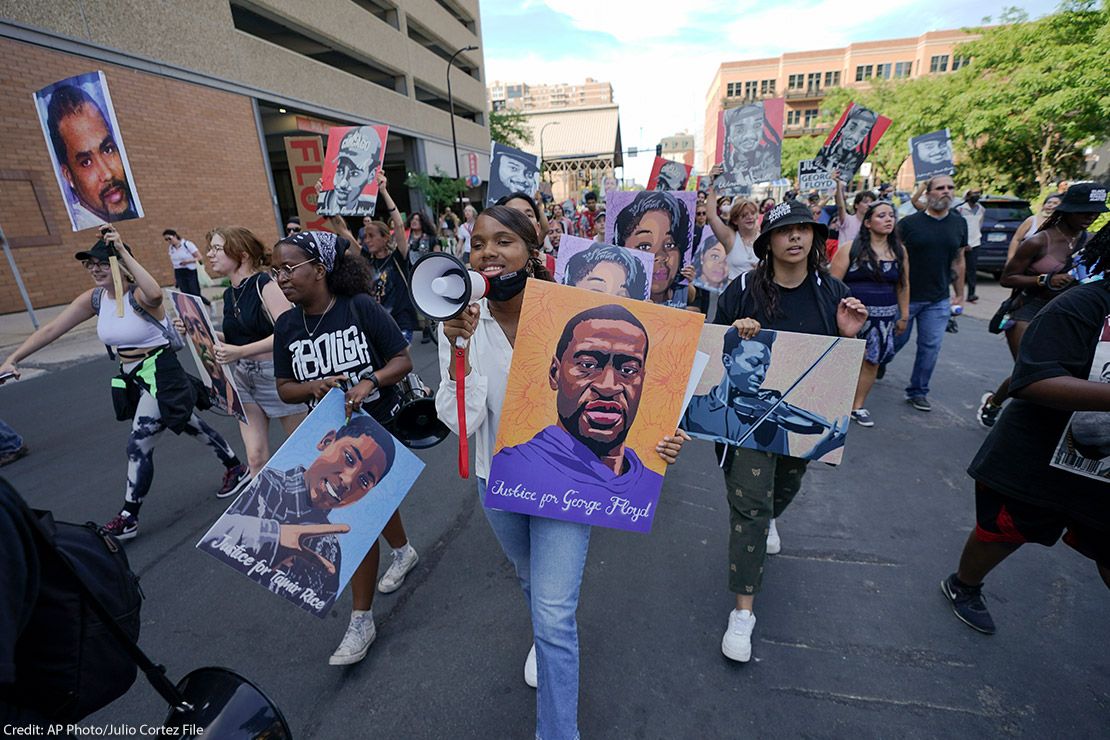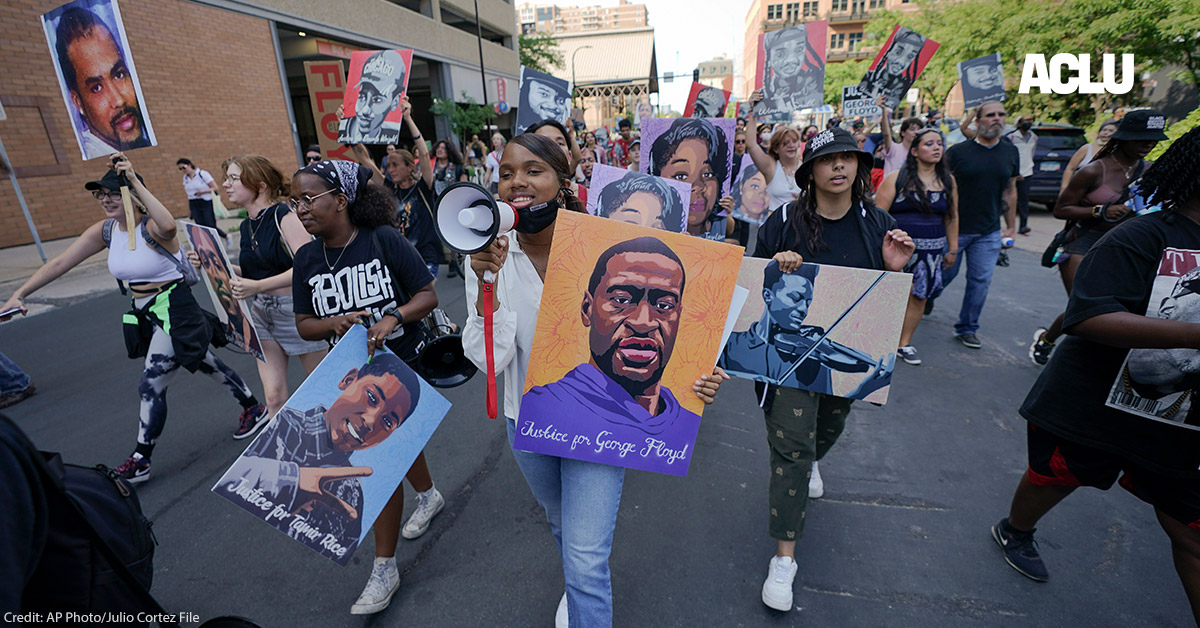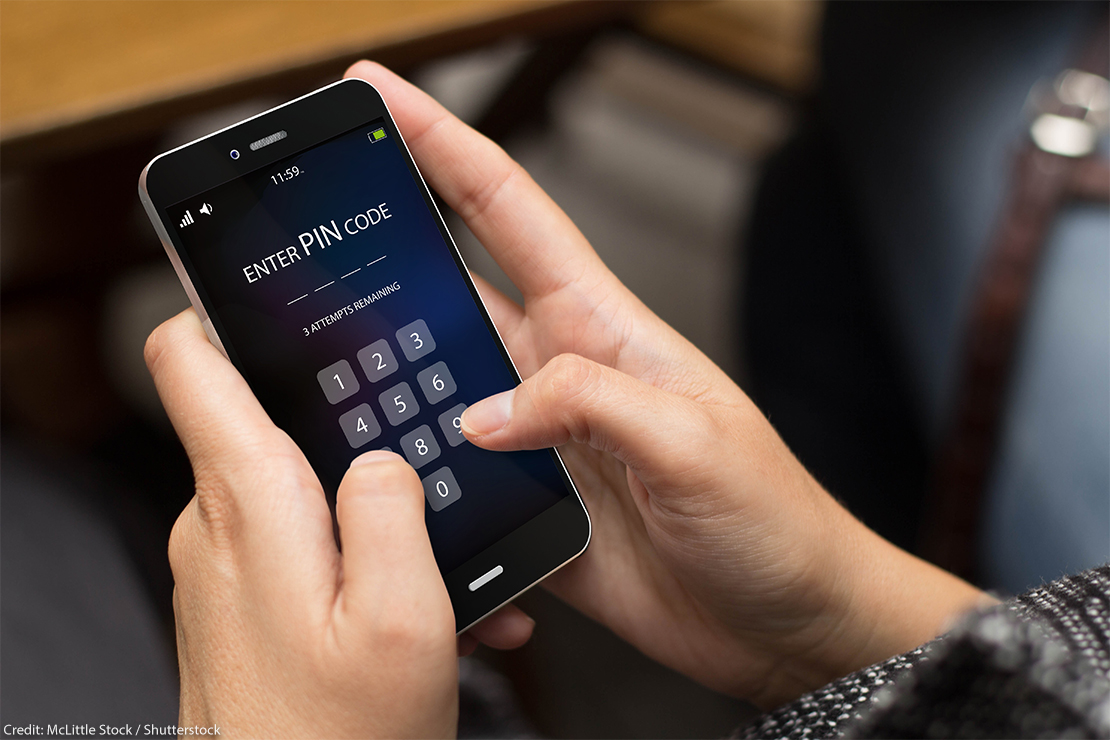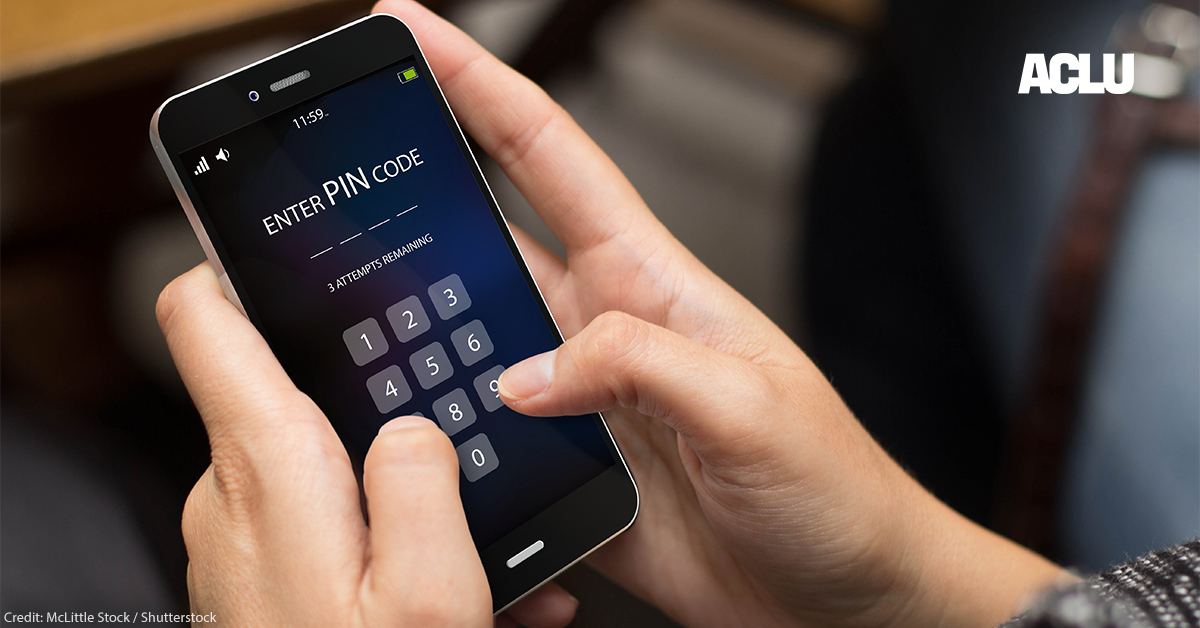We celebrate Pride this year in defiance of the almost 500 anti-LGBTQ bills pending or passed in state legislatures around the country. Unsurprisingly, these attacks are turning to the criminal legal system to enforce homophobia and transphobia:
- Bills that would criminalize health care providers and families of trans children for providing necessary and life-saving gender affirming care.
- Bills that would criminalize drag performances.
Governments Have Always Criminalized Queer Life
Queer people have always been over-criminalized and over-incarcerated. This is especially true for Black trans women and other trans women of color. According to the Sentencing Project, LGBTQ adults are incarcerated at three times the rate of the general population. Among trans people, 1 in 6 report being incarcerated at any point in their lives — and nearly half of those are Black trans people.
LGBTQ people live in a social reality that makes their lives much more precarious. For example, LGBTQ people are more likely to experience discrimination in housing and employment, meaning they are more likely to experience poverty and homelessness. Because our nation criminalizes people for poverty, LGBTQ people are more likely to be arrested and get trapped in the criminal legal system.
Governments criminalize queer people’s mere existence — and Black trans women and trans women of color are especially vulnerable. Police use laws criminalizing sex work to target trans women of color for “walking while trans.” For example, The New York Times reported in 2016, police used the extremely broad “anti-loitering” law to profile trans women of color as sex workers, including based on their appearance: they were “arrested while wearing short dresses or high heels or tight pants and, in one bizarre instance, that well-known symbol of sexual seduction: a black pea coat.” The law was repealed in 2021.
A relic of the moral panic around the AIDS epidemic, the majority of states still criminalize people living with HIV. These laws are based on discrimination, pure and simple, not on any valid public health rationale.
Ending mass incarceration and over criminalization must be, and has always been, a central part of the movement for LGBTQ liberation. Indeed, what we celebrate at Pride is an uprising against police violence and harassment, where queer and trans people asserted their right to live freely.
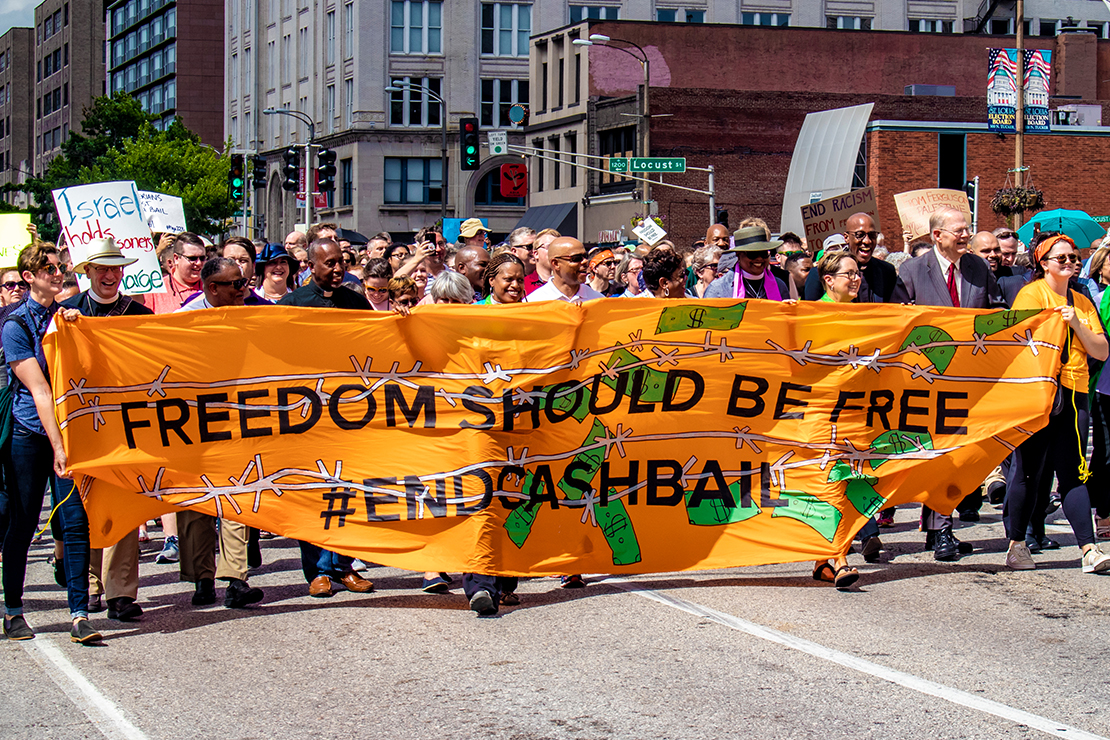
Credit: Eric O. Ledermann / Shutterstock
Liberation For All of Us Must Include Supporting Bail Reform
Because the criminal legal system is a tool for oppressing and controlling Black people, people of color, low-income people of all races, and queer and trans people — our shared freedom lies in significantly reducing the footprint of mass incarceration while investing in the resources our communities need to thrive and to be safe.
At the front end, that must mean supporting bail reform and pretrial release. On any given day in the United States, 427,000 people are incarcerated in our more than 3,000 jails despite not having been convicted of a crime. Many of these people are inside because they can’t afford their freedom. And, as a number of our lawsuits have shown, wealth-based pretrial detention is not only contrary to safety and justice, it is unconstitutional.
Even a few days in pretrial detention can have devastating impacts on a person, depriving them of their safety and stability. People in pretrial detention often lose their jobs, housing, or custody of their kids. They are separated from their families and community support networks — who scramble to figure out childcare and come up with the money to bail out their loved one. And conditions in jails are almost universally abysmal.
For LGBTQ people, pretrial detention carries additional risks. LGBTQ people often are held in solitary confinement to separate them from the general population “for their safety” — even though solitary confinement, even for short periods of time, has profound and irreversible psychological and physical effects.
Trans people generally do not have a choice about whether they’d feel safer in a men’s or women’s jail, do not receive access to gender-affirming health care or clothing, and face greater risk of violence, including sexual violence, from other people in the jail and jail staff.
The tragic and preventable death of Layleen Polanco is a case in point. Ms. Polanco was an Afro-Latina trans woman who could not afford $500 in bail. She died in solitary confinement at Rikers Island Jail in May 2019.
A report from the city agency with oversight of the jail found the Department of Corrections’ policy not to house transgender women with cisgender women contributed to the decision to put Ms. Polanco in solitary — even though she had epilepsy, a serious medical condition that should have exempted her from isolation. Her death was determined to be the result of medical complications due to epilepsy.
Bail funds like the LGBTQ Freedom Fund and SONG’s Black Mamas Bail Out Action center the intersectional experience of low-income, Black LGBTQ people and bail them out.
Jurisdictions that have adopted bail reform — whether through legislation or because of legal action — have seen significant positive impacts on safety and justice. A recent study of 11 jurisdictions with bail reform found eliminating cash bail had significant positive impacts for individuals, families and communities, in terms of relieving the financial burden and keeping families and communities intact. Those studies found crime and bail reform are not strongly linked — despite baseless fearmongering to the contrary.
Let’s Demand Abundance, Not Fear
The enormous efforts hostile state legislators and elected officials are taking to harm queer and trans people and pursue failed punitive policies only offer us fear and a lack of imagination, love, or empathy. If we want justice and safety for all of us, we need to reject punishment — and reject those who offer us punishment and call it safety.
Instead, we can demand investments in communities of abundance, where everyone has what they need to thrive: affordable housing, economic opportunity, health care access, well-resourced and affirming schools, and freedom from incarceration and violence.
Queer and trans communities offer us an expansive vision of love, safety, and justice. It is one where the streets are safe for all of us, no matter who we are or what we look like. It is one where we take care of each other. That is the world we want to live in, and that world is within reach.
Date
Friday, June 23, 2023 - 9:30amFeatured image
